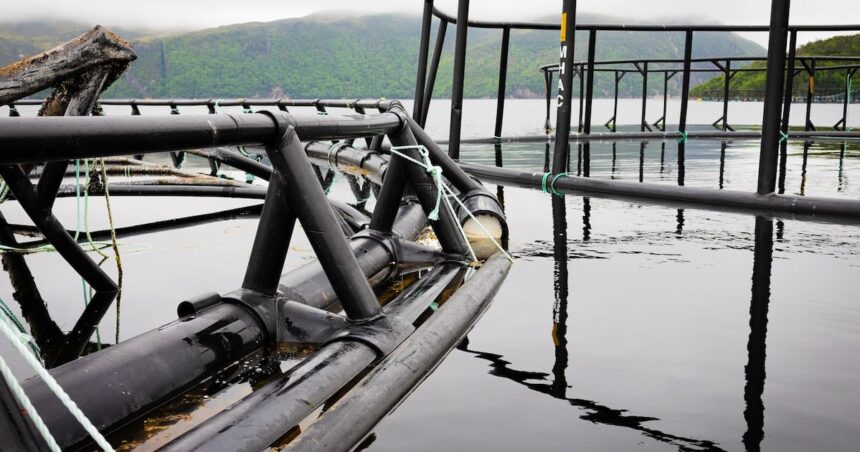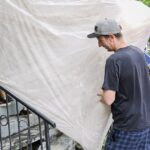The pristine waters off Newfoundland’s southern coast have become the center of a growing environmental controversy as a prominent salmon conservation group alleges widespread improper waste disposal by aquaculture companies operating in the region.
According to documents obtained by CO24 News, the Atlantic Salmon Federation has submitted evidence to provincial authorities claiming that several major fish farming operations are systematically dumping industrial waste materials in remote coastal areas rather than properly disposing of them through regulated channels.
“What we’re witnessing is essentially an industrial dumping ground hidden in plain sight,” said Margaret Cromwell, lead researcher with the Atlantic Salmon Federation. “Our investigation has documented at least seven locations where aquaculture equipment, chemical containers, and feed bags are being stashed in ravines and coastal inlets, far from public view.”
The federation’s report, compiled over an 18-month period, includes photographic evidence of deteriorating plastic mesh pens, industrial rope, feed bags, and other aquaculture equipment allegedly abandoned along the Fortune Bay coastline. Provincial regulations require these materials to be transported to designated waste management facilities.
When contacted by CO24, Newfoundland’s Department of Fisheries, Forestry and Agriculture confirmed they have received the complaint and have initiated an investigation. “We take all allegations of environmental non-compliance seriously,” said departmental spokesperson Robert Jenkins. “Our enforcement officers are actively reviewing the submitted evidence.”
The aquaculture industry represents a significant economic driver in rural Newfoundland and Labrador, with exports valued at approximately $390 million annually. Industry representatives have pushed back against the allegations, suggesting the documented waste may be from historical operations or other marine industries.
“Modern aquaculture operations adhere to strict environmental protocols,” said Jennifer Harlow of the Newfoundland Aquaculture Industry Association. “Our members are committed to sustainable practices and proper waste management. We welcome transparent investigation but caution against premature conclusions.”
Environmental experts note that the abandoned materials pose significant risks to marine ecosystems. Dr. Thomas Reid, marine biologist at Memorial University, explained to CO24 Business that “these materials can leach chemicals into the water and create physical hazards for marine life. Plastic debris eventually breaks down into microplastics that enter the food chain.”
Local residents in the affected communities express mixed reactions. While some worry about environmental impacts, others fear that negative publicity could threaten crucial jobs in the region’s aquaculture sector, which employs over 800 people directly.
“We need these jobs, but we also need companies to follow the rules,” said Gerald Parsons, a fisherman from Fortune Bay who first reported some of the waste sites to conservation authorities. “Our livelihoods depend on healthy oceans for the long term.”
The controversy emerges as the provincial government considers applications for expansion of salmon farming operations in the region. Environmental advocacy groups are calling for a pause on new approvals until the waste disposal allegations are fully investigated.
As this story develops, a fundamental question remains for coastal communities across Canada: How do we balance the economic benefits of aquaculture with the environmental protections necessary to ensure sustainable coastal ecosystems for future generations?










